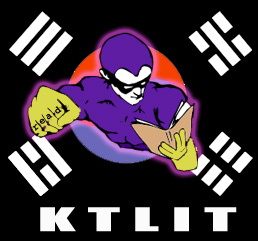 LOL… every once in a while I still come across a missing Korean author that makes me shake my head. In this case it’s Yom Sang-seop, who wrote the important novel Three Generations and short story On the Eve of the Uprising.
LOL… every once in a while I still come across a missing Korean author that makes me shake my head. In this case it’s Yom Sang-seop, who wrote the important novel Three Generations and short story On the Eve of the Uprising.
It is here…
and it looks a little like this:
Yom Sang-seop
| Yom Sang-seop | |
|---|---|
| Born | November 11, 1887 (age 125) Seoul, South Korea |
| Occupation | Novelist |
| Nationality | South Korea |
| Period | 1887-1964 |
Yom Sang-seop (born 1887) (Hangul: 염상섭) was a South Korean writer.
Yom Sang Seop was a Korean novelist and freedom fighter in the early part of the 20th century. Yom was an early pioneer of modern narrative in Korea and a “writer of the period of dissatisfaction.” In this role Yom was one of the first naturalistic and realistic writers in Korean literature. [1]. Yom’s role in resistance against Japanese colonialism resulted in his being arrested (Yom, booksleeve).
Contents |
Life
Yom was born in 1887 in Seoul and studied at the High School level in Japan in 1912. After completing High School. Yom entered Keio University. After one semester, however, he dropped out and began a literary magazine with fellow writer Hwang Seok-u. At about this time he discovered the March 1 Independence Movement in Korea and began to plan a parallel rally in Osaka, Japan. For these efforts, Yom was arrested by the Japanese and put in prison, but subsequently acquitted on appeal (Yom, 473-4[2]). In 1920, Yom returned to Korea and took a position as a reporter at the Dong-A Ilbo newspaper. During the 20’s Yom became a proponent of a national literature for Korea, and was one of the few writers (Hwang Sun-won being another notable example) who did not write in Japanese or publish fawning articles at the height of Japan’s colonial repression (Yom, 476), although he did return to Japan in 1926 to focus on his writing. In 1928 Yom returned to Korea, married Kim Yong-ok, and joined the Chosun Ilbo as main editor of the Arts and Science section of that paper (Yom, 476). Yom died in 1964.
Works
Yom published his first fiction, the stories Hakjigwang and Sangwang in 1919. (Yom, booksleeve). In 1921 Yom’s story Frog in the Specimen Room was published in the journal Dawn of History, and in 1922 one of his most famous (and translated into English) works On the Eve of the Uprising was published. Yom returned to Japan and wrote the novels Two Minds and Love and Crime. While working at the Chosun Ilbo, Yom wrote a third novel, Running Wild. Perhaps Yom’s most famous work is Three Generations, a 472 page novel which was published in 1931. As was common at the time, the novel was published in serial chunks, in this case in the Chosun Ilbo. At the time, this was the only way that fiction was being published in Korea (Kim, in Yom, 473). The novel was not initially recognized as important, only being published as a book in 1948.
As time went by, Yom’s importance to Korean literature was recognized. In 1953 Yom was recognized with the Seoul Culture Award, three years later receiving the Asia Freedom Literature Award, and a year after that, in 1957, he received the National Academy of Arts’ Contribution Award. One year before he died in 1963, he was also awarded the March 1st Culture Award and the Korean President’s Medal (Yom, booksleeve).
In Korea’s modern history, literature has always been important, and it has always served as a spotlight on, and assessment of social conditions of its era. Yom Sang-seop, who focused on the suffering pursuant to colonialization demonstrates how literature can reflect and respond to reality. Readers looking to achieve an understanding of Korean literature, and Korean society, in the early decades of the 20th century, should strongly consider reading the works of this iconic author.
Works in English
Three Generations
On the Eve of the Uprising (in the collection On the Eve of the Uprising and Other Stories from Colonial Korea)


